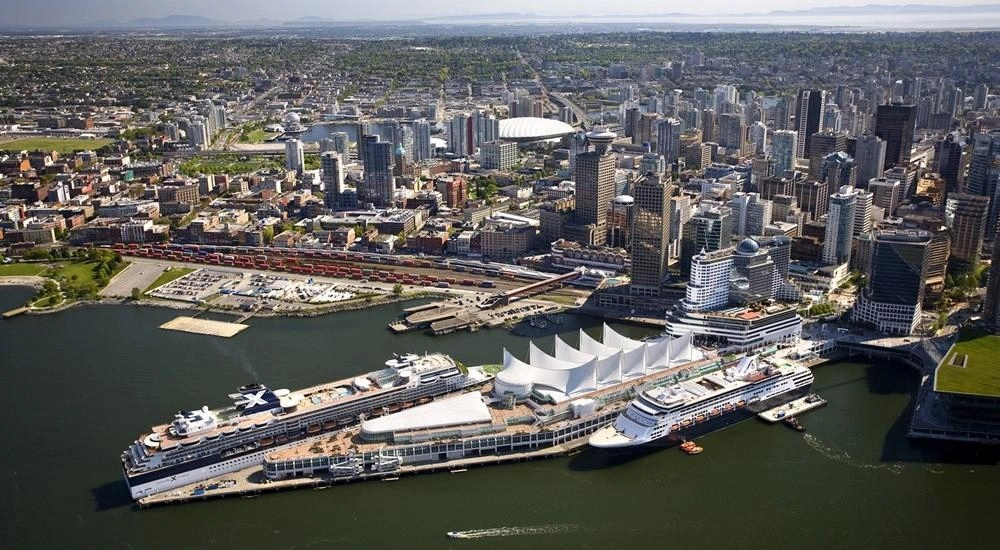
Milestone Achieved: First LNG Bunkering for Cruise Ships at Port Vancouver, BC Canada
The Port of Vancouver has reached a milestone in maritime sustainability by conducting the first-ever liquefied natural gas (LNG) bunkering for a cruise vessel. This operation was carried out by Seaspan Energy’s LNG bunkering tanker, Seaspan Garibaldi, which supplied the alternative fuel to a cruise ship preparing for an Alaskan voyage. This marks the start of LNG refueling for deep-sea cruise vessels at the port, making Vancouver a pivotal player in the movement toward lower-emission marine operations.
LNG has emerged as the leading alternative fuel available in the international shipping sector and is now approved for large-scale bunkering at the Port of Vancouver. This initiative supports the Vancouver Fraser Port Authority’s ongoing goals to reduce emissions and encourage sustainable practices within the maritime sector. The transition from conventional marine fuels, like heavy fuel oil and marine diesel, to LNG aligns port operations with global decarbonization goals, including targets set by the International Maritime Organization to achieve net-zero emissions by 2050.
While biofuels have been available at the port in limited quantities, LNG marks the first significant alternative to diesel-based fuels offered at scale. This development is expected to pave the way for future integration of next-generation fuels, such as ammonia. Seaspan Energy, which obtained LNG bunkering accreditation from the port authority in late 2023, operates a fleet of three LNG bunkering vessels along the West Coast. The company has conducted multiple successful refueling operations in Vancouver for a range of vessels, including container ships, car carriers, and bulk cargo ships.
The accreditation process for LNG involved a thorough safety assessment led by the port authority, incorporating international best practices and site-specific planning. The successful integration of LNG demonstrates the authority’s commitment to safety and environmental stewardship, as they continue to handle various LNG-fueled vessels safely and routinely.
Vancouver’s cruise industry, which has served as a homeport for Alaska sailings for three decades, is essential to its sustainability agenda. Cruise lines visiting Vancouver have adopted practices like shore power and participated in voluntary environmental initiatives such as the ECHO Program, which aims to protect marine life by reducing vessel speeds in sensitive areas. In 2023, over 90% of cruise operators participated in ECHO, and more than 80% of cruise calls in 2024 are expected to utilize the port’s hydro-powered shore grid. Since 2009, the implementation of shore power has reduced over 45,000 tons of greenhouse gas emissions from cruise activities related to the port.
The port’s dedication to environmental leadership has been acknowledged through the Blue Circle Awards, which were awarded to five cruise lines last year for their efforts in improving ecological performance.
With 301 cruise calls anticipated in 2025—each contributing approximately CA$3 million to the local economy—Vancouver is set to remain an important gateway for voyages to Alaska and a growing center for sustainable maritime operations.
Set sail on a voyage of discovery with CruiseShip.net – your ultimate destination for all things cruising! Explore the latest news, insightful reviews, and thrilling cruising adventures from around the globe. Whether you’re a seasoned cruiser or a first-time traveler, CruiseShip.net is your go-to source for expert advice, insider tips, and inspiring stories to fuel your wanderlust. Embark on a journey like no other with CruiseShip.net – where every wave brings new excitement and endless possibilities on the high seas.
At CruiseShip.net, our editorial team is made up of passionate travelers, seasoned cruisers, and maritime industry enthusiasts who live and breathe life at sea. From the latest ship launches and destination spotlights to detailed reviews and onboard tips, we are dedicated to helping readers discover the joy of cruising.
Our mission is to make every article both inspiring and useful, whether you are planning your first voyage or your fiftieth. We research, fact-check, and collaborate with cruise insiders around the world to bring you accurate, up-to-date, and exciting coverage of the global cruise industry.
Join us as we chart new horizons, exploring one port, one ship, and one unforgettable experience at a time.



Leave a Reply